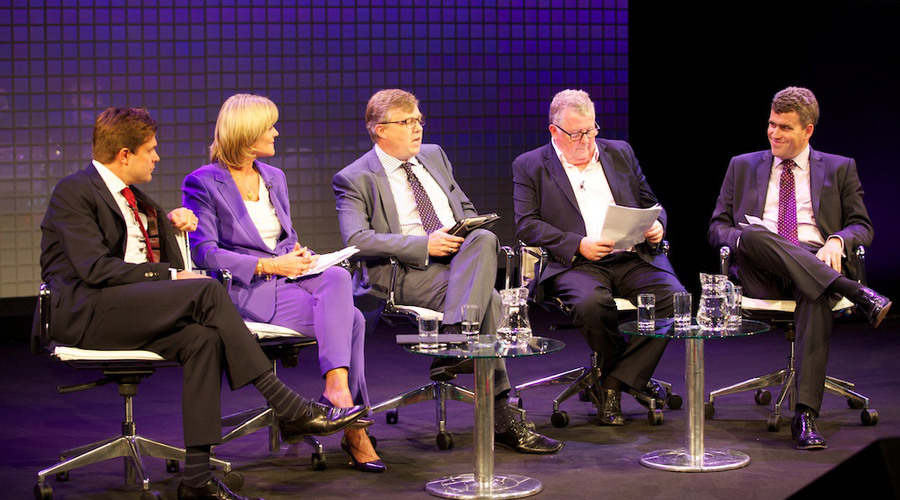The biggest single number in the whole, complex value chain of British TV deconstructed by Deloitte at the beginning of the Convention is sports rights – a whopping £1.148bn. Introducing this session, Dan Jones, a partner in Deloitte’s sports business group, posed the question: if content is still king, is sport the kingmaker?
Unequivocally yes, in his view, and Jones painted BSkyB and the English Premier League as the ultimate symbiotic relationship. Moreover, almost as much money comes into the Premiership from broadcasters abroad as is generated by UK television companies.
BT is the newest entrant into the premium-sports-rights market, but Marc Watson, CEO of BT TV, said it was important to put the telco’s massive investment in television in perspective. “We are investing £1bn in TV sport, but £3bn in broadband,” he emphasised. “Broadband is already the biggest TV platform, with 22 million households.”
Watson revealed that BT first became a broadcaster of live events in 1896. After 27 years it had amassed 2,000 customers.
This time around it is doing rather better: with something north of 1 million subscribers, but with its annual report due shortly, Watson said he was unable to provide more detail.
“We want to be a broadcaster with great live sport, but we want to expand our market beyond sport: only one in five households subscribes to premium sport,” Watson said. He predicted that BT would make itself “an immovable part of the UK broadcasting landscape” but underlined that “our success does not require Sky’s failure.”
Watson also joked: “We never underestimated our ability to screw this up. I know that no one else did, either.”
Introducing Fru Hazlett, managing director of commercial, online and interactive at ITV, the session chairman, Ben Fenton, head of creative industries at Edelman, suggested that pay-TV had scoffed all the pies: ITV was left with the sporting crumbs.
Hazlett offered a spirited defence of sport’s value to ITV’s schedule: “We don’t have the crumbs of sport, we have the cake.” But she conceded that, for all its value in attracting viewers, sport could not be a major contributor to ITV’s coffers. Unlike programmes it makes itself, the broadcaster gets no rights income.
Broadcaster and analyst Steve Hewlett wanted to know from Watson how many of his BT Sport subscribers were new BT customers.
Without parting with any figures, Watson conceded that cutting churn – and “binding our high-value customers into longish contracts is important – these are people who could easily have left BT”.
So BT Sport represents a defensive move that costs £500m a year to save £700m of lost customer revenues a year, probed Hewlett?
“It is not defensive, it is quite aggressive,” retorted Watson. “Stopping churn is a very important aim for us. And lucrative – customers leaving is about the most value-destroying thing that can happen.”

